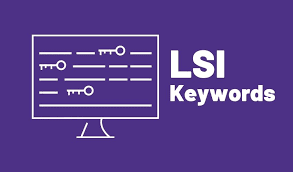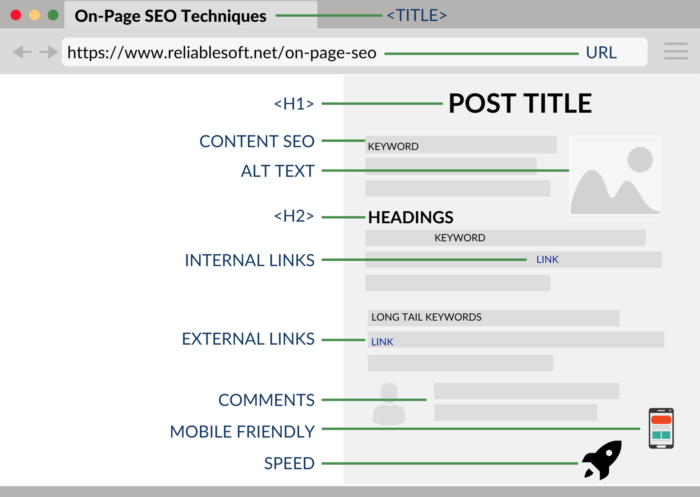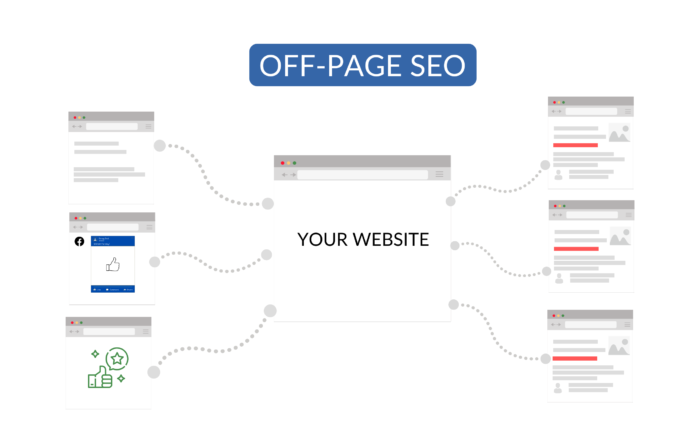[This is a test site and all posts are generated with ChatGPT unless indicated otherwise.]
In today’s digital landscape, where online visibility plays a pivotal role in business success, SEO keywords have emerged as crucial elements for improving search engine rankings and driving targeted organic traffic to websites. In this fast-paced world of the internet, where millions of websites compete for attention, understanding the significance of SEO keywords can make all the difference.
Search engines like Google serve as the gateway to the vast realm of information available on the internet. When users search for specific topics, products, or services, search engines rely on keywords to provide them with the most relevant and valuable results. SEO keywords act as the bridge between users’ search queries and the content available on websites.
By strategically incorporating relevant keywords into your website’s content, you enhance its visibility in search engine results pages (SERPs). When your website ranks higher in SERPs, it gains increased exposure to potential visitors, expanding its reach and attracting organic traffic. The better your website aligns with the keywords users search for, the more likely it is to appear in front of the right audience, resulting in increased visibility and brand awareness.
Role of keywords in driving targeted organic traffic to websites

One of the key advantages of SEO keywords lies in their ability to drive targeted organic traffic to websites. Unlike paid advertisements or social media promotions, organic traffic refers to visitors who discover your website naturally through search engine results, without any direct advertising. These visitors are often highly valuable because they actively search for specific information, products, or services related to your industry or niche.
By conducting thorough keyword research and optimizing your website with relevant keywords, you can ensure that your content aligns with the queries of your target audience. This alignment results in attracting visitors who are genuinely interested in what you offer, increasing the chances of engagement, conversions, and ultimately, business growth.
In the ever-evolving digital landscape, understanding and implementing effective SEO keyword strategies is vital for enhancing online visibility, improving search engine rankings, and driving targeted organic traffic to your website. By harnessing the power of keywords, you can unlock the potential to reach and connect with your desired audience, positioning your website for success in the competitive online realm.
What are SEO keywords?

SEO keywords are specific words or phrases that are strategically chosen and incorporated into website content to optimize it for search engines. These keywords play a crucial role in search engine optimization (SEO) by helping search engines understand the relevance and subject matter of web pages, ultimately influencing the website’s visibility in search engine results.
Search engines like Google constantly crawl and index billions of web pages to provide users with the most accurate and relevant results. When users enter a query into a search engine, it analyzes the keywords within the query and matches them with the content available on web pages. Websites that effectively utilize SEO keywords and align their content with user queries are more likely to appear higher in search engine results pages (SERPs).
When users have a question, a need, or are seeking information, they turn to search engines for answers. They enter specific words or phrases, known as search queries or keywords, into search engines to find the most relevant information. SEO keywords are the terms that match these user queries and help search engines deliver accurate and valuable results.
For example, if a user is looking for information on “best smartphone cameras,” they might enter that exact phrase or variations of it into a search engine. Websites that have optimized their content with relevant SEO keywords like “best smartphone cameras” have a higher chance of appearing in the search results. By understanding the keywords users are searching for, businesses can tailor their website content to provide the information and solutions users seek.
Choosing the right keywords
Choosing the right keywords is a fundamental aspect of optimizing website content for search engines. The success of a website’s SEO efforts heavily relies on selecting keywords that are relevant, have sufficient search volume, and match the user intent. Here’s why choosing the right keywords is crucial:
- Relevance: SEO keywords must accurately reflect the content and purpose of a webpage. By using relevant keywords, search engines can better understand the context and relevance of the content, which increases the chances of appearing in relevant search results.
- Search Volume: Keywords with a higher search volume indicate that more users are actively searching for information related to those terms. Targeting keywords with significant search volume can help websites attract a larger audience and increase their potential reach.
- User Intent: Understanding user intent is essential for selecting the right keywords. User intent refers to the reason behind a search query. By aligning keywords with user intent, websites can create content that directly addresses the needs, questions, or problems users are seeking solutions for.
- Competition: Keyword competition refers to the number of other websites vying for visibility using the same keywords. It’s important to strike a balance between highly competitive keywords and those with lower competition. Targeting long-tail keywords (more specific and less competitive) alongside broader keywords can help optimize website content effectively.
By conducting thorough keyword research, analyzing search trends, and staying informed about industry-specific keywords, businesses can choose the most suitable SEO keywords for their website content. Choosing the right keywords not only improves the chances of ranking higher in search results but also helps attract targeted organic traffic, leading to increased visibility, engagement, and conversions.
Different Types of Keywords for SEO
SEO keywords come in different types, each with its own characteristics and significance. Short-tail keywords are brief and generic, attracting high search volume but resulting in lower conversion rates.
Long-tail keywords, on the other hand, are more specific and descriptive, offering better targeting of niche audiences and higher conversion rates. LSI keywords, as related terms to the main keyword, provide context, relevance, and help in optimizing content while avoiding keyword stuffing.
By understanding the distinctions and leveraging the strengths of each type, businesses can develop effective keyword strategies and optimize their website content for better search engine visibility and user engagement.
1. Short-Tail Keywords
Short-tail keywords, also known as head keywords, are concise search terms typically composed of one to three words. These keywords are broad and general in nature, often representing a broader topic or category. For example, “digital marketing” or “running shoes” are examples of short-tail keywords.

Short-tail keywords usually have a high search volume due to their general nature. Since they are commonly used and more generic, they attract a larger audience. However, this high search volume also means increased competition among websites trying to rank for these keywords.
Short-tail keywords have the potential to drive a significant amount of traffic to a website. However, due to their broad nature, they may not always attract the most targeted audience. Consequently, the conversion rates for short-tail keywords tend to be lower compared to more specific keywords. Visitors may be in the early stages of their research or exploration, rather than being ready to make a purchase or take a specific action.
2. Long-Tail Keywords
Long-tail keywords consist of three or more words and are more specific and descriptive compared to short-tail keywords. They reflect the intent of the user more accurately and often represent a particular query or a niche topic. For example, “best running shoes for marathon training” or “digital marketing strategies for small businesses” are examples of long-tail keywords.

Long-tail keywords typically have lower search volumes compared to short-tail keywords. Since they are more specific, they attract a smaller, more targeted audience. This lower search volume also means lower competition, making it relatively easier to rank higher for long-tail keywords.
The specificity of long-tail keywords allows websites to target users with higher intent, resulting in better conversion rates. Users who search using long-tail keywords are often looking for specific information, products, or solutions. By aligning content with long-tail keywords, websites can better cater to the needs of niche audiences, offering valuable and targeted information.
3. LSI Keywords
LSI keywords are words or phrases that are semantically related to the main keyword or topic of a webpage. Search engines use LSI keywords to understand the context and relevance of content. For example, for the main keyword “apple,” LSI keywords could include “fruit,” “orchard,” or “nutrition.”

LSI keywords help search engines understand the overall theme and topic of a webpage. By using LSI keywords, websites provide additional context and relevance, which can improve search engine rankings. LSI keywords also help search engines identify quality content and avoid keyword stuffing, a practice that negatively impacts SEO.
Using LSI keywords naturally and strategically within content helps optimize webpages for search engines. It allows for a more comprehensive coverage of a topic and enhances the overall user experience. LSI keywords also prevent keyword stuffing, where excessive and unnatural repetition of the main keyword can lead to penalties from search engines. By incorporating LSI keywords, websites can create content that is informative, valuable, and avoids over-optimization.
Keyword research process
Keyword research plays a pivotal role in any successful search engine optimization (SEO) strategy. It involves identifying the most relevant and effective keywords that will help drive targeted organic traffic to a website. Here are a few reasons why keyword research is essential:
- Understanding User Intent: Keyword research provides insights into what users are searching for and helps businesses understand user intent. By uncovering the specific words and phrases users enter into search engines, businesses can align their content with user needs, questions, and interests.
- Relevance and Visibility: Keyword research helps identify the keywords that are most relevant to a website’s content and target audience. By optimizing content with these keywords, websites increase their chances of appearing in relevant search results and gaining visibility among their target audience.
- Competitive Advantage: Keyword research also allows businesses to gain a competitive advantage by identifying keywords with lower competition. By targeting specific, niche keywords that are relevant to their offerings, businesses can stand out in a crowded online landscape and attract more qualified traffic.
- Content Optimization: Keyword research guides the optimization of website content. By incorporating relevant keywords naturally into titles, headings, meta tags, and throughout the content, websites can signal to search engines the topic and relevance of their pages, improving their chances of ranking higher in search results.

Steps involved in keyword research
Keyword research is a vital process in SEO that helps identify relevant and effective keywords. By understanding user intent, gaining visibility, gaining a competitive advantage, and optimizing website content, businesses can increase their chances of ranking higher in search results and attracting targeted organic traffic.
By following a structured approach that involves identifying the main topic, brainstorming seed keywords, utilizing research tools, analyzing keyword metrics, and selecting a mix of keyword types, businesses
1. Identify the main topic or theme of the website
Start the keyword research process by clearly identifying the main topic or theme of the website. This provides a foundation for generating relevant keywords and optimizing content.
2. Brainstorm seed keywords related to the topic
Brainstorm a list of seed keywords that are directly related to the main topic or theme of the website. These are general keywords that represent the core concepts or offerings of the website.
3. Utilize keyword research tools to generate a list of potential keywords
Leverage keyword research tools such as Google Keyword Planner, SEMrush, Ahrefs, or Moz Keyword Explorer to expand your list of potential keywords. These tools provide valuable data on search volume, competition, and related keywords.
4. Analyze search volume, competition, and relevance of keywords
Evaluate the search volume and competition of the generated keywords. Look for keywords with a decent search volume that align with the website’s goals. Consider long-tail keywords with lower competition as they can offer better targeting opportunities.
Also, assess the relevance of each keyword to ensure it accurately reflects the content and intent of the website. Keywords should align with user queries and provide value to the target audience.
5. Select a mix of short-tail, long-tail, and LSI keywords for optimization
Opt for a strategic mix of short-tail, long-tail, and LSI keywords to optimize the website’s content effectively. Short-tail keywords can drive broader traffic, while long-tail keywords target specific queries and niche audiences. LSI keywords provide context and relevance to search engines, enhancing the overall optimization.
When selecting keywords, consider the balance between search volume, competition, and relevance. Optimize different pages of the website with a diverse range of keywords to increase the chances of ranking for various search queries.
Keyword Optimization Techniques
1. On-Page Optimization

1. Incorporating keywords in page titles, headings, and meta tags
Incorporating keywords in page titles, headings, and meta tags is crucial for on-page optimization. Search engines place significant importance on these elements when determining the relevance of a webpage to a user’s search query. By including relevant keywords in these areas, websites signal to search engines the topic and content of the page, increasing the likelihood of ranking higher in search results.
2. Use of keywords in URL structures and image alt tags
URL structures and image alt tags provide additional opportunities for keyword optimization. Including keywords in URLs creates descriptive and user-friendly links, making it easier for both search engines and users to understand the page’s content. Similarly, optimizing image alt tags with relevant keywords helps search engines comprehend the visual content and improves accessibility for visually impaired users.
3. Keyword density and natural integration within the content
Keyword density refers to the frequency of keywords within the content compared to the overall word count. While keyword density alone does not guarantee better rankings, it is important to include keywords naturally throughout the content. Strive for a balanced approach that ensures keywords are seamlessly integrated, enhancing the readability and flow of the content. Avoid keyword stuffing, as it can lead to penalties from search engines and hinder the user experience.
2. Off-Page Optimization

1. Using backlinks from reputable sources
Off-page optimization, particularly through backlinks, plays a crucial role in keyword optimization. When reputable websites link to your content, it signals to search engines that your website is trustworthy and authoritative. This can positively impact your keyword rankings. Seek opportunities to earn high-quality backlinks from authoritative sources within your industry or niche to improve your keyword optimization efforts.
2. Anchor text in backlinks
Anchor text is the clickable text within a hyperlink. When other websites link to your content using anchor text that includes relevant keywords, it enhances the keyword relevance of the linked page. Aim for a diverse range of anchor text variations, incorporating keywords naturally and contextually. However, avoid over-optimization and maintain a natural link profile to ensure search engines view your backlinks as organic and trustworthy.
3. Content Creation and Keywords

Creating high-quality and relevant content is essential for effective keyword optimization. Search engines prioritize content that provides value and meets the needs of users. Focus on creating informative, engaging, and well-researched content that aligns with the keywords you are targeting. Quality content increases the chances of attracting organic backlinks, social shares, and user engagement, all of which contribute to improved keyword optimization.
Include keywords in headings, subheadings, and body paragraphs
Strategically include keywords in headings, subheadings, and body paragraphs to optimize your content. Headings and subheadings provide structure and hierarchy to the content, and including relevant keywords helps search engines understand the topic and context. Incorporating keywords naturally throughout the body of the content further reinforces its relevance and improves keyword optimization.
User intent
Keyword optimization should always consider user intent. Understand the intent behind the keywords you are targeting and provide valuable information that fulfills user needs. Focus on creating content that answers questions, solves problems, and offers unique insights. By prioritizing user intent and providing valuable information, you not only enhance keyword optimization but also improve user satisfaction, engagement, and conversions.
Keyword tracking and analysis

Tracking keyword performance is crucial for an effective search engine optimization (SEO) strategy. Here’s why it is important:
- Measure SEO Success: Tracking keyword performance allows you to assess the effectiveness of your SEO efforts. By monitoring keyword rankings and organic traffic, you can gauge whether your optimization strategies are yielding positive results or if adjustments are needed.
- Identify Opportunities: Keyword tracking helps you identify new keyword opportunities that you may have missed during the initial research phase. By monitoring trends and changes in user search behavior, you can discover emerging keywords and optimize your content to target them.
- Stay Ahead of Competition: Tracking keyword performance helps you keep an eye on how your competitors are performing. By monitoring their keyword rankings, you can identify areas where you can outperform them or uncover opportunities to optimize your content further.
Analytics tools
To effectively track keyword performance, you can utilize various analytics tools. Here are some commonly used tools and their functionalities:
- Google Analytics: Google Analytics provides valuable insights into website traffic, including organic search traffic. It allows you to track keyword rankings, analyze user behavior, measure conversions, and monitor overall website performance.
- Google Search Console: Google Search Console offers data on how your website appears in search results. It provides information on keyword impressions, clicks, click-through rates (CTR), and average position in search results. This data helps you evaluate keyword performance and identify opportunities for improvement.
- Third-Party SEO Tools: Several third-party tools, such as SEMrush, Ahrefs, Moz, and Serpstat, offer comprehensive keyword tracking and analysis features. These tools provide detailed reports on keyword rankings, search volumes, competition, and keyword opportunities. They also offer competitor analysis, backlink tracking, and other valuable SEO insights.
Process of analyzing keyword data
Analyzing keyword data is essential to make informed decisions and optimize your website effectively. Here’s a step-by-step process:
- Monitor Keyword Rankings: Regularly track and monitor your keyword rankings using analytics tools. Identify keywords that have improved or declined in rankings, as well as new keywords that have started to gain visibility. This helps you understand the impact of your optimization efforts.
- Analyze Organic Traffic: Review the organic traffic data for each keyword. Look for patterns and trends in traffic volume, changes in CTR, and user engagement metrics. Identify keywords that drive significant traffic and conversions, as well as those that may require optimization.
- Assess Keyword Relevance: Evaluate the relevance of keywords to your target audience and content. Determine if your current keyword strategy aligns with user intent and if adjustments are needed to better target your audience.
- Identify High-Impact Keywords: Identify keywords that have a high potential for driving traffic, conversions, or achieving specific business goals. Focus on optimizing content around these keywords to maximize your SEO efforts.
- Refine Content Optimization: Based on the keyword analysis, refine your content optimization strategy. Update page titles, headings, meta tags, URL structures, and on-page content to better align with target keywords and user intent.
- Track Progress and Iterate: Continuously monitor and track the impact of your optimization efforts. Observe changes in keyword rankings, organic traffic, and user engagement metrics. Iterate and refine your strategies based on the insights gained from keyword analysis.
In conclusion, tracking keyword performance, utilizing analytics tools, and analyzing keyword data are vital components of effective SEO
Keyword Best Practices and Tips

- Conduct Thorough Keyword Research: Start with comprehensive keyword research to identify relevant keywords that align with your content and target audience. Use tools like Google Keyword Planner, SEMrush, or Moz Keyword Explorer to find high-volume and low-competition keywords.
- Optimize On-Page Elements: Incorporate keywords strategically in on-page elements such as page titles, headings, meta descriptions, and URLs. Ensure the keyword placement appears natural and enhances the overall relevance and readability of the content.
- Create Quality, User-Focused Content: Prioritize the creation of high-quality content that addresses user intent and provides value. Focus on producing informative, engaging, and well-structured content that naturally incorporates keywords and answers user queries.
- Optimize for Mobile and Voice Search: With the increasing popularity of mobile devices and voice assistants, optimize your content for mobile and voice search. Use long-tail and conversational keywords that align with how users speak and search through voice commands.
- Build a Diverse Backlink Profile: Earn high-quality backlinks from authoritative and relevant websites. Focus on building relationships with industry influencers, publishing guest posts, and engaging in content marketing activities to naturally acquire backlinks. Diverse anchor text and backlink sources can enhance keyword optimization efforts.
Tips for staying up-to-date with keyword trends and changes in search algorithms
- Follow SEO News and Blogs: Stay updated with the latest SEO news and industry blogs to stay informed about keyword trends, algorithm updates, and best practices. Subscribe to reputable sources such as Moz, Search Engine Journal, and Search Engine Land.
- Monitor Search Engine Updates: Keep an eye on official announcements and updates from major search engines like Google, Bing, and Yahoo. Search engines often provide guidelines and insights into algorithm changes and best practices.
- Leverage SEO Tools and Analytics: Utilize SEO tools and analytics platforms to monitor keyword rankings, organic traffic, and user behavior. These tools often provide alerts or notifications about fluctuations in keyword rankings and algorithm changes.
- Participate in SEO Communities: Engage with SEO communities, forums, and social media groups to discuss and share insights with fellow professionals. Participating in these communities can help you stay updated on emerging trends and algorithm changes.
- Continuously Educate Yourself: SEO is an ever-evolving field, so invest in continuous learning and professional development. Attend industry conferences, webinars, and workshops to gain knowledge about keyword optimization and the latest SEO practices.
Importance of ongoing keyword research and optimization efforts
- Evolving Search Landscape: Search patterns, user behavior, and search engine algorithms are constantly evolving. Ongoing keyword research helps you adapt to changes in the search landscape and identify new keyword opportunities that align with evolving user needs.
- Competitive Advantage: Continuous keyword optimization efforts give you a competitive advantage over others in your industry. By staying proactive and regularly optimizing your content, you can outrank competitors and attract more targeted organic traffic.
- User-Centric Approach: Ongoing keyword research and optimization efforts allow you to stay in tune with your target audience’s needs and preferences. By understanding their changing search behavior, you can create content that addresses their queries and provides valuable information.
- Improved ROI: By consistently optimizing your website and content with relevant keywords, you increase the chances of ranking higher in search results. This can lead to increased organic traffic, better user engagement, and higher conversion rates, ultimately improving your return on investment (ROI).
- Stay Relevant and Future-Proof: As search engines continue to evolve, staying on top of keyword research and optimization ensures your website remains relevant and adaptable. By aligning your content with user intent and industry trends, you can future-proof your SEO efforts and maintain visibility in search results.
In conclusion, incorporating effective keyword usage and optimization practices, staying updated with keyword trends and search algorithm changes, and maintaining ongoing keyword research and optimization efforts are crucial for maximizing the impact of your SEO strategies. By following these best practices and tips, you can enhance your keyword optimization efforts and drive organic traffic to your website.
Maximize Your Online Visibility By Implementing Effective Keyword Research
SEO keywords play a crucial role in improving online visibility and search engine rankings. By strategically incorporating relevant keywords into your website content, you increase the likelihood of attracting targeted organic traffic. Effective keyword usage and optimization enhance your website’s visibility in search results, making it easier for potential customers to find you.
To harness the power of SEO keywords, it’s essential to implement keyword research and optimization techniques. Conduct thorough keyword research, analyze keyword data, and optimize your website content accordingly. Stay updated with keyword trends and search algorithm changes to adapt your strategy as needed. By continuously refining your keyword optimization efforts, you can maximize your online visibility, attract relevant traffic, and ultimately achieve your website’s goals.
Remember, implementing effective keyword research and optimization techniques is an ongoing process. So, take action today and leverage the power of SEO keywords to enhance your website’s visibility and drive organic traffic.

